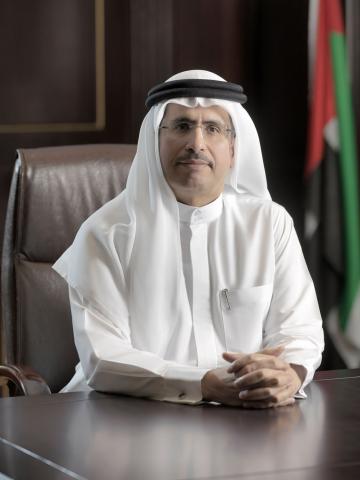
Dubai Electricity and Water Authority (DEWA), has connected its database to the Atmatah automation system launched by the UAE Ministry of Energy. The system is the first federal database in the UAE’s energy sector. This provides government organisations with direct access to the Ministry of Energy, to collect information and data related to energy from energy producers and users. This facilitated making studies, and developing informed strategies for the UAE energy sector. Connecting to Atmatah is one of the ways DEWA is supporting the transformation into smart cities of the future in the UAE, to achieve people’s happiness while encouraging sustainable resources and integrating services.
According to HE Saeed Mohammed Al Tayer, MD & CEO DEWA, all of DEWA’s operations are completely automated using the latest systems and international practices, and DEWA’s database is connected to the Ministry of Energy’s automation system, adopting the principles of information and data exchange contributes to achieving local economic goals.
“Establishing national plans, policies, and programmes, depends largely on availability, accuracy, and quality of statistics related to energy generation and use. In smart cities, all stakeholders will benefit and cooperate, including water, electricity, communications, transportation, education, and healthcare service providers, and other government and private organisations. This helps to establish a social communication system, and infrastructure, based on the highest levels of efficiency and accountability. Open and shared data plays an important role to enhance transformation into a knowledge-based economy, by encouraging innovation and creativity and using data to find innovative solutions, developing smart and new applications and services with added value, and supporting scientific research through studies, as per the statistics provided by organisations. This will further establish an environment to facilitate business and investment. Through this connection, government and private organisations will be able to save time, efforts, and money. It also helps in decision making, depending on available data,” said Al Tayer.
“DEWA’s smart grid strategy contains 11 programmes to be completed over the short, medium and long-term, from 2014 to 2035. These programmes are the Advanced Metering Infrastructure for Electricity, Advanced Metering Infrastructure for Water, Asset Management, Demand Response, Distribution Automation, Information Technology Infrastructure, Substation Automation, System Integration, Telecommunications, Big Data and Analytics, and Security. We will also make use of the big data generated by smart meters and grids to further enhance the availability, efficiency and reliability of our services. This data will, in turn, be used to enhance operational efficiency in our generation, transmission and distribution of electricity and water, so we can serve our customers better, and drive Research and Development (R&D) by identifying opportunities for future improvements within our sector. Big data will not only provide up-to-date information about electricity and water consumption by Dubai’s citizens and residents, but it will also pave the way for the Internet of Things, which is a key component of future smart cities, to achieve the UAE Vision 2021, to make the UAE one of the best countries in the world by 2021,” added Al Tayer.
Categories
- Log in to post comments
